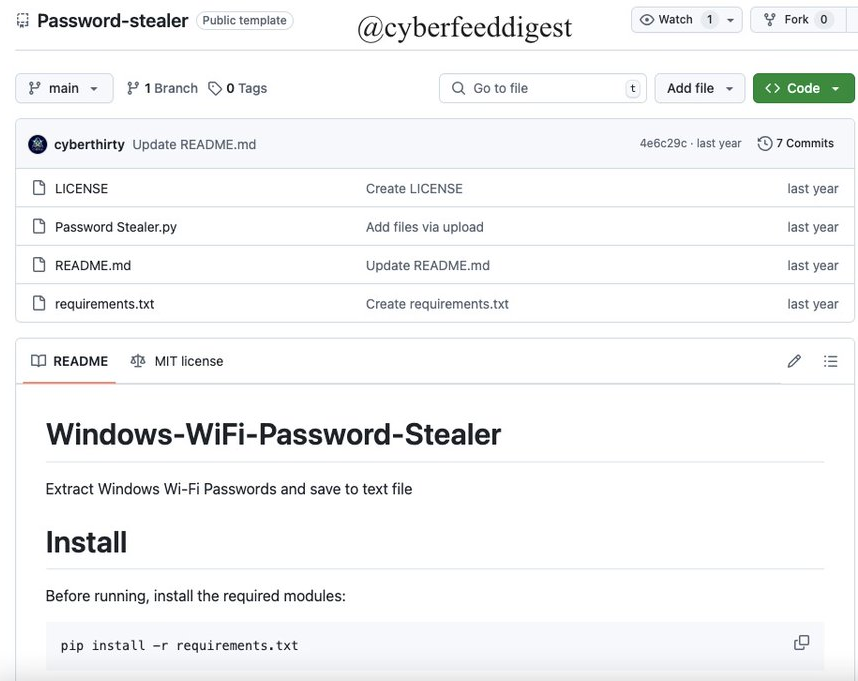Hackers Exploit GitHub to Steal Windows Wi-Fi Passwords – Stay Alert!

A dangerous Wi-Fi password-stealing tool has been found on GitHub. This Python-based script can extract saved Wi-Fi credentials from Windows devices, making it a serious security risk. While labeled as an "educational tool," it can easily be misused by hackers to gain unauthorized network access.
- GitHub Repository Exposed: A repository named Windows-WiFi-Password-Stealer contains a Python script that steals Wi-Fi passwords.
- How It Works: The tool runs legitimate Windows commands like netsh wlan show profile to list saved Wi-Fi networks and extracts passwords from configuration files.

- Evades Detection: The script deletes traces after extracting passwords, making it harder to detect.
- Easy to Use & Deploy: Written in Python, the tool requires minimal dependencies and can be turned into an executable file using PyInstaller, making it accessible even to non-technical users.
- Security Risks: Cybercriminals can use this tool to steal Wi-Fi passwords, gain access to networks, and move laterally within an organization to launch further attacks.
- Protect Your Network: Organizations must enforce multi-factor authentication (MFA) for Wi-Fi access and regularly change passwords to reduce risks.
This Wi-Fi password stealer highlights a major security weakness in how Windows stores and manages credentials. Although not inherently malicious, it can be easily misused by hackers to steal passwords and compromise networks.
Stay protected with NPAV Endpoint Security, which detects and blocks unauthorized credential theft attempts. Secure your network, devices, and data with advanced cybersecurity solutions from NPAV!
Comment(s)






